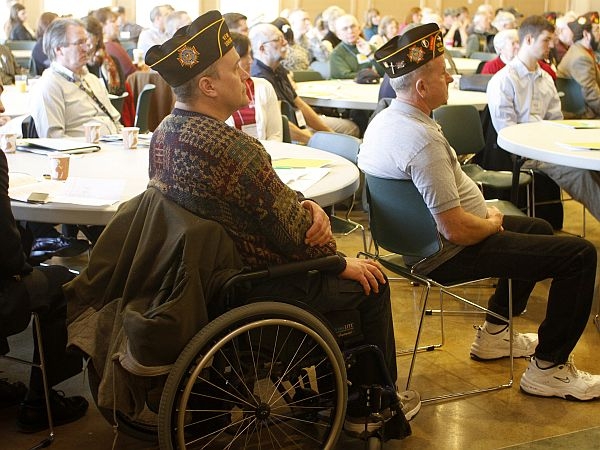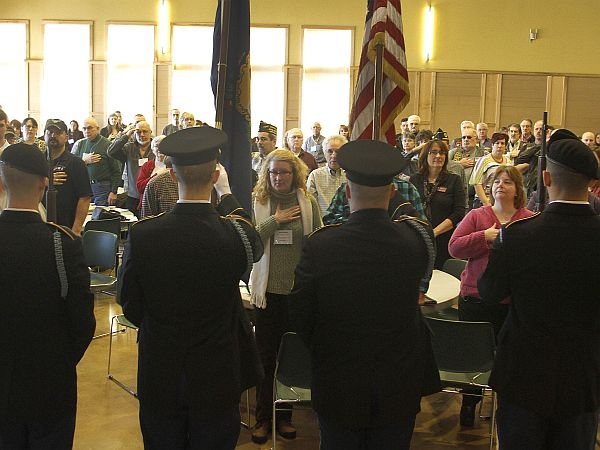
Over the next few years, an estimated one million military service members will hang up their uniforms and try to return to civilian life. But are our colleges and communities doing everything possible to ease that transition?
That was the big question at an all-day veterans summit held over the weekend at Lyndon State College.
The keynote speaker was Kristin Henderson, a journalist who has written about the challenges facing military families. The wife of a Navy chaplain, she spoke candidly about how his wartime experiences have tested their marriage. And she read this excerpt from her book, "While They’re at War," about how her husband’s unit in Iraq relied on chickens to detect chemical weapons. The chickens died in the desert, so they found replacements.
"Several vehicles in each convoy carried one wire mesh cage equipped with one desert-tested feathered chemical agent detector, a pigeon. The desert version of a canary in a coal mine. Back on the home front, the pigeons are children," she read.
Children, Henderson said, are more likely than adults to signal their emotional distress, so adults can help them. But adults, she said, have more trouble asking for help, even when they go to colleges where it is readily available.

The transition to college, another speaker said, wasn’t as easy as he expected, after grueling missions in Iraq and Afghanistan. Michael Dakduk heads Student Veterans of America.
"I was looking for fellow veterans as I was walking the halls of my college campus because sitting with eighteen year olds just wasn’t vibing so well with me. We didn’t connect," Dakduk recalled.
For vets going or returning to college, he said the learning curve can be steep.
"These folks have been removed from an academic setting for multiple years in one or more combat deployments, so we know these are skills that can deteriorate over time," he said.
Plus, life on the home front can be rocky. PTSD has been shown to be related to attention deficit disorder, making studying difficult.
In the gym, vendors and agencies advertised services and products for veterans. Russell Floyd, who served in Vietnam and now belongs to a motorcycle club called Veterans Helping Veterans, wished he saw more young faces in this crowd.
"I don’t see them, as far as the guys that have just come back, I’m seeing a lot of the people that are here that are willing to support those people who are out there. What I would like to hear is "how do we go out there and find them?" Floyd asked.
Later, six younger veterans-all college students–did show up on a panel. They took gentle jabs at non-military classmates who complained, for example, about campus food. "Ever taste a MRE-meal ready to eat? It’s like eating Styrofoam," one joked. The panel asked for more recognition of skills they had acquired while serving their country. A medic with 20 years of experience said she can’t seem to get any credit for it towards her nursing degree.
College and elected officials, including Senator Bernie Sanders, vowed to work on problems like that.